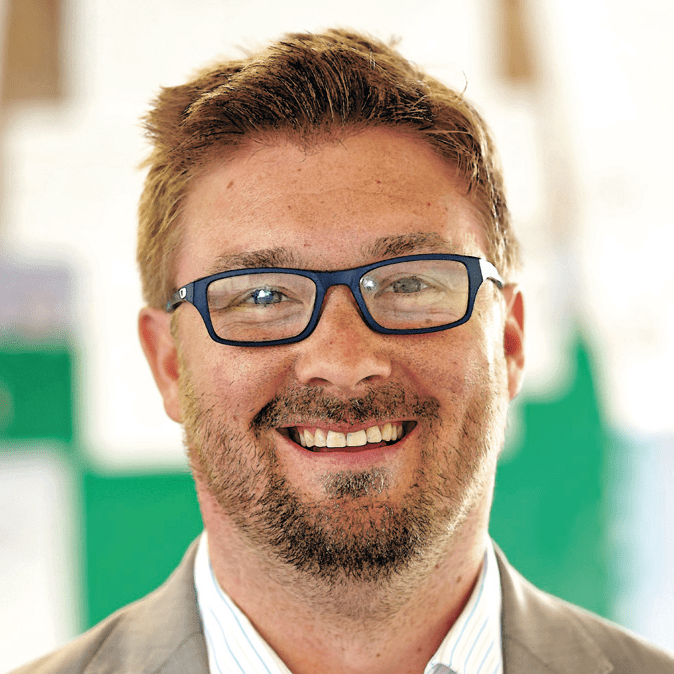“There’s No One Perfect Way in Education” – Taking the Pedagogy Pepsi Challenge

“Believing there is only one way of doing something is a very dangerous position,” says Jeremy Hannay

At the beginning of my teaching career, I watched an incredible TED Talk given by Malcolm Gladwell.
In the 1970s, Pepsi was looking to change its Diet Pepsi line from being made with its classic sweeteners to aspartame. They approached a man, Dr Howard Moskowitz, who would unknowingly change the way we look at food forever.
The challenge they gave him was to find the perfect amount of aspartame in a can of Diet Pepsi.
Pepsi told him that they knew that it fell somewhere between 8 and 12% – below 8 was not sweet enough and above 12 was too sweet. Seems like a pretty simple challenge: find the perfect Pepsi.
Dr Moskowitz did what most of us would do: he made up batches of Diet Pepsi with aspartame at 8, 8.1, 8.2, 8.3% all the way to 12% and took taste tests around the country.
By the end of his experiment he had a mountain of data that he thought he would plot on a curve and simply select the most popular concentration. Easy. Except something strange happened: there was no curve, the data was a mess – there was no perfect Pepsi.
This troubled him for years, until one day he realised the mistake – possibly the biggest mistake in the history of food science: we had been asking the wrong question. All this time we had been looking for the ‘perfect Pepsi’ when we should have been looking for the ‘perfect Pepsis’.
This revolutionary thinking eventually led to the food market we have today: Pepsi, Pepsi Max, Diet Pepsi, Diet Caffeine-Free Pepsi, Pepsi Light, Pepsi Clear, Pepsi Twist, Pepsi Cherry.
His thinking changed the way we shop, eat and live. We now have 36 flavours of pasta sauce, 45 different varieties of olive oil, 16 different mustards.
Dr Moskowitz discovered something in the food industry that is also true of our primary schools: there is no one way to do everything, but a variety of excellent ways to do anything. When thinking about pedagogy and curriculum design, the same thinking needs to apply.
There is no perfect or imperfect pedagogy or curriculum. There are only different kinds of approaches that suit different kinds of children, subjects, cultures, communities, ages, developmental levels, skills and knowledges that exist in classrooms every day.
Pedagogy or pedagogies?
Classrooms are complicated and complex. I often see seething battles on Twitter about the traditional or progressive approaches to pedagogy; one or the other, this way or that way. No in between. Whether you’ve been teaching for two years or 20, believing there is only one way of doing something is a very dangerous position.
At my school, you will always see a variety of approaches. When we teach phonics and spelling, we use direct instruction. Our teachers use scripted lessons and sequences in order to teach every child to read.
The teacher models everything very explicitly. We make no apologies about this (actually, we invite you in to see it!) and believe wholeheartedly that there is no better way to learn how to read and spell words for most children.
However, that is not how we teach mathematics.
It would be rare to see a teacher at Three Bridges start a lesson by explicitly modelling how to complete a problem. Our teachers are facilitative rather than instructional.
Balance is key. Exploring what sounds a symbol might make would be a disaster; telling primary children that three times four is 12 without exploring it with concrete materials first is equally disastrous.
Again, there is no perfect pedagogy. There are only different kinds of pedagogies that suit different kinds of subjects.
Knowledge or skills?
Curriculum is no different. There is a growing trend for the rebirth of a knowledge rich curriculum in contrast to a more skills orientated curriculum.
At Three Bridges, we do not see the need for an either/or situation. We strive to accomplish both (and more!) in balance. It is absolutely essential that our children learn discreet subject knowledge that is built upon sequences of knowledge that they already know and can make connection to.
While everything today is ‘googleable’, our children need rich vocabularies and deliberate exposure to traditional knowledge in order to eliminate the cognitive load of trying to critically analyse an idea while also trying to learn the new information all at once. They need to have excellent reading, writing and mathematics skills to excel.
We also believe that our pupils need more contemporary knowledge of global, financial, environmental and civic issues. However, having all of the ‘pub quiz’ knowledge in the world isn’t going to make you employable or enjoyable.
In tandem with a rich knowledge base, children need the skills and character traits that will allow them to effectively employ their knowledge in the broader world.
Skills like creativity, innovation, critical thinking, problem solving, communication, collaboration and leadership are crucial for everyone. Being flexible and adaptable, using your initiative and having self-direction – no one would argue that these aren’t vital skills.
Traits like service, humility, gratitude and forgiveness are all essential in being a happy human.
Like pedagogy (and Pepsi), there is no perfect curriculum, only curricula that suit different kinds of schools in different contexts and communities.
We need knowledge rich content delivered in ways that engage and sustain a lifelong love of learning, and the tenacity, courage and critical skills to change the world we live in.
How to choose
Diet Pepsi, Pepsi Max and Pepsi Light – they’re all Pepsi. Separating pedagogy and the curriculum is impossible. At Three Bridges, we try to have the ‘long look’. While we need all forms of pedagogy, knowledge and skills, life beyond the test is crucial to consider when making decisions about what to teach and how it will be taught.
My belief is that the content to learn and the manner in which it is learnt are both instructional. There is a deep need for both traditional and contemporary knowledge to solve the world’s complex challenges.
There is no one perfect way for everything, but there are perfect ways for everyone. Each approach needs to be balanced with long term thought about our children, communities, cities and world. And, as Dr Moskowitz discovered, we need to be certain we are asking ourselves the right questions.
Three thinking points
- Balance reading, writing and mathematics with traditional subjects and 21st century themes
- Develop interdisciplinary skills by focusing on work, technology, information, media, learning and life skills
- Define what you mean by ‘learning’: getting high test scores and being bold about learning aren’t mutually exclusive
Jeremy Hannay is headteacher at Three Bridges Primary in Southall, London. Follow him on Twitter at @hannayjeremy.












